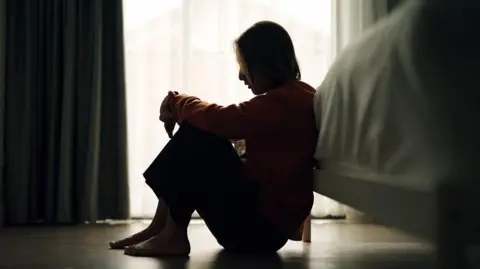In a significant development regarding reproductive rights, Members of Parliament (MPs) are poised to cast votes that could reshape the legal landscape surrounding abortion in England and Wales. The impending vote centers on proposed amendments to current abortion legislation, which largely stems from the Victorian-era Offences Against the Person Act of 1861. This framework currently criminalizes abortion, although it allows for procedures under specific circumstances as established by the 1967 Abortion Act, which permits abortions up to 24 weeks into a pregnancy.
The backdrop to this legislative effort is an alarming trend where women are increasingly facing police investigations and potential charges over illegal abortions. The proposed reforms have stirred public discourse, emphasizing the urgent need to decriminalize abortion altogether for women acting in relation to their own pregnancies. The Labour MP Tonia Antoniazzi has been a key proponent, having tabled an amendment under the Crime and Policing Bill that seeks to remove criminal penalties for women undergoing abortions at any stage of pregnancy.
Under the existing law, obtaining an abortion requires the endorsement of two doctors and mandates that a woman must provide justification related to her health risks before the 24-week limit. The proposed amendment aims to streamline this process, suggesting that the two-doctor sign off remains necessary only when an abortion is performed in a healthcare facility. Antoniazzi articulates a vision where the police, Crown Prosecution Service (CPS), and wider criminal justice system are not trusted to administer abortion law effectively, asserting that her amendment is essential for protecting women’s rights.
The urgency of this legislative change is highlighted by real-life judicial cases. Six women have appeared in court within the last three years, charged with offenses linked to their pregnancies. Most recently, a case involving Nicola Packer drew attention when she faced charges for self-administering abortion pills at home during the COVID-19 lockdown. Ultimately cleared by a jury, Packer’s situation underscored the perceived obsolescence of current abortion laws. The Royal College of Obstetricians and Gynaecologists (RCOG) expressed that her trial exemplifies the outdated nature of these laws and called for progressive reforms.
In parallel, another proposal is supported by Labour MP Stella Creasy, aiming to affirm access to abortion as a fundamental human right, decriminalizing it up to 24 weeks and alleviating penalties for late-term abortions. Creasy’s amendment has garnered a fair amount of parliamentary backing and seeks to establish a legal landscape consistent with Northern Ireland, where abortion was decriminalized in 2019.
However, both proposals prompt varied reactions within and outside Parliament. Critics, including factions representing the Society for the Protection of Unborn Children, alert MPs to the potential implications of such reforms. They argue that the amendments could endanger unborn lives and threaten to expand abortion access excessively, potentially allowing terminations up to the time of birth.
Preparing for the upcoming vote, it has been confirmed that MPs from Labour, Liberal Democrats, and Conservative parties will be granted a free vote, meaning individual MPs can decide based on their conscience rather than party directives. This respects the deeply personal and sensitive nature of the subject. Official statements have emphasized the necessity of women having access to safe and legal abortions and noted that current regulations allowing home administration of abortion pills are an essential component of women’s health services.
The context of abortion law continues to be a contentious issue, as changes are under review not only in England and Wales but also in Scotland, where advocacy groups are calling for similar reforms. Abortion regulations, which initially permitted procedures up to 28 weeks, were revised in 1990 to set a limit of 24 weeks, with exceptions only allowed in specific emergency circumstances.
As MPs prepare to vote on these crucial amendments, it remains to be seen how the future of abortion law in England and Wales will be shaped, and whether the proposed changes can secure the necessary parliamentary support to enhance women’s reproductive rights.



